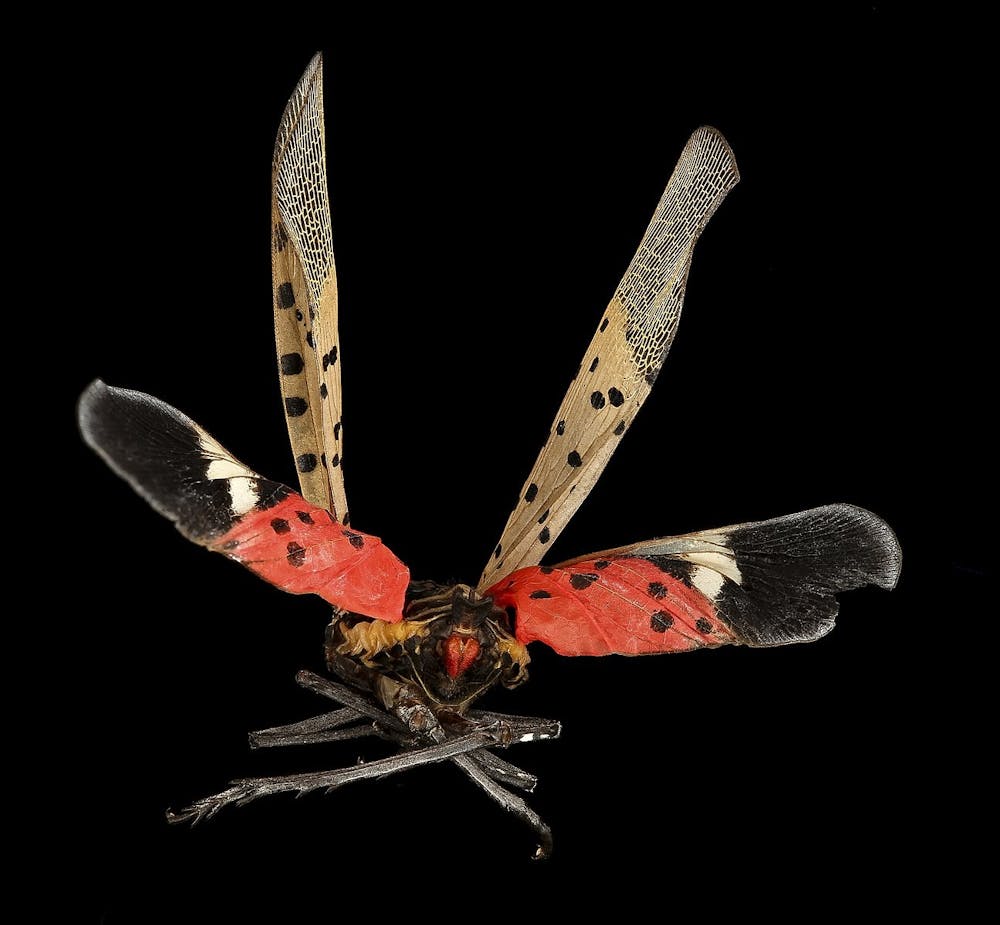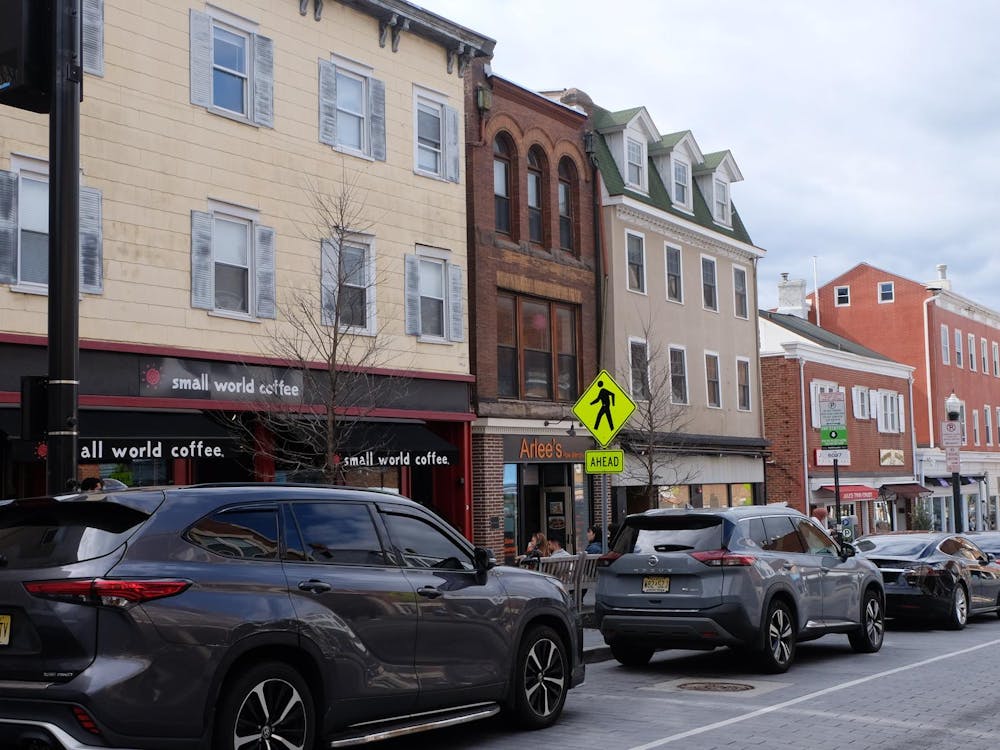The following is a guest contribution and reflects the author’s views alone. For information on how to submit an article to the Opinion Section, click here.
See it, share it, stomp it! These are the steps you should follow if you see the insect called the spotted lanternfly around Princeton.
Native to China, India, and Vietnam, the spotted lanternfly is an invasive planthopper that, in recent years, settled in the United States. It was first spotted in 2014 in Pennsylvania, and since then it has spread to other states such as Delaware, New York, Connecticut, Ohio, Maryland, Virginia, and New Jersey. Although quite beautiful, with spotted reddish-gray wings, the insect causes damage by feeding on the sap of plants and excreting honeydew. This honeydew then builds up into a sooty mold/fungi, covering the plant and deteriorating its health.
The spotted lanternfly targets the trees and floral plants that are present in Princeton’s beautiful gardens, such as Prospect Garden, Wyman Garden, and Hibben Garden. In particular, Prospect Garden contains plenty of native tulip trees and American beeches, which are some of the spotted lanternfly’s favorite to attack. This means our gardens, filled with an abundance of fragrant flowers and towering trees, are in peril of damage.
Unfortunately, our gardens are not the only aspect of our community that the spotted lanternfly threatens. Every Thursday from May 13 through Nov. 18 on Franklin Avenue off Witherspoon Street, the Princeton Farmers’ Market unites local farmers and vendors who share their fresh produce with our community. The spotted lanternfly causes severe damage to many vital economic crops of these farmers including grapevines, fruit bushes, maples, and more, costing states’ economies millions of dollars.
It is thus all the more important that we make an effort to slow the spread of this insect, which is damaging the plants we enjoy and produce we depend on. We can start by learning about the regulations residents should follow to mitigate its effects.
When you are walking around Princeton, be sure to keep an eye out for these insects in gardens, building surfaces, vehicles, or other places. Look at N.J.’s resident checklist to see how you can help slow the spread. In general, be sure to take a picture, report the image, and then kill the bug (they are harmless to humans). If any trees or surfaces are heavily infested, you can call local services that offer spotted lanternfly treatments.
In addition, be aware that Mercer County is currently in a quarantine zone, which was put into place in order to slow the movement of the species into and out of regions by regulating the movement of vehicles and materials like steel, wood, metals, and plants. Drivers or businesses operating in Princeton should follow the regulations of our state agricultural department when it comes to transportation.

It’s important we take care of our campus and town to prevent further spread and damage of crops, so remember: See it, share it, stomp it!
Sreya Jonnalagadda is a resident of Princeton who is currently studying spotted lanternflies. She can be reached at sreyaj99@gmail.com.









